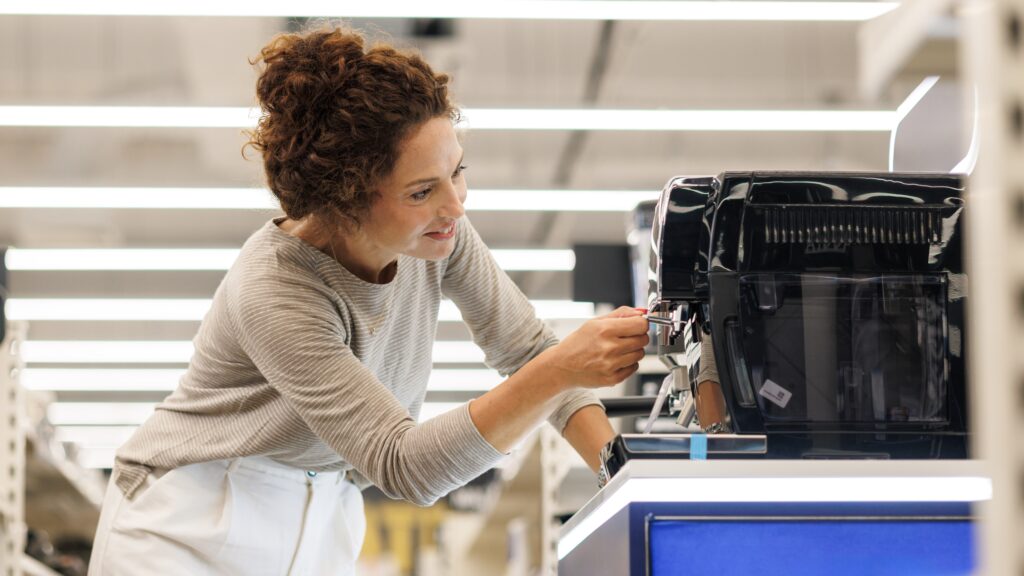
2201688410
Choosing the right coffee maker can significantly enhance your daily brew. As a trained barista and tester for TechRadar, there are crucial factors to consider before making your next coffee machine purchase. These insights can save you from potential disappointment and ensure a consistently high-quality cup.
Consistency is Key
One of the most important aspects of any coffee maker is its ability to produce consistent results. A machine that brews an exquisite cup one day and a lackluster one the next can be frustrating. If the machine does not allow for adjustments in grind size or brew temperature, it becomes difficult to pinpoint the issue when the results vary. Therefore, investing in a machine that has a solid reputation for reliability is essential.
Maintenance is another factor that should not be overlooked, especially when considering bean-to-cup machines. These devices can be prone to mold growth if not designed well. Ensuring that the machine is easy to clean can make a significant difference in its longevity.
The Importance of Temperature Control
Temperature plays a critical role in the flavor profile of your coffee. Higher temperatures can speed up extraction, affecting taste even when using the same beans and grind size. When shopping for a coffee machine, look for models featuring a PID (proportional-integral-derivative) controller. This technology continuously monitors and adjusts the boiler temperature, providing stability throughout the brewing process. Machines lacking this feature may experience significant temperature fluctuations as the heating element cycles on and off.
Additionally, the design of the group head, which transfers hot water through the coffee grounds, also affects temperature. Premium espresso machines often include two heating elements—one in the boiler and another in the brewing group—to maintain a consistent temperature. For those who want to experiment, flushing the group head with hot water before brewing can mitigate temperature issues.
The Role of the Grinder
The quality of the grinder is equally important, particularly for espresso. A good grinder should produce consistently fine particles, which is crucial for optimal extraction. Less expensive machines often rely on blade grinders that do not grind but chop the beans, resulting in uneven coffee grounds.
Instead, seek machines equipped with burr grinders that utilize two burrs—either conical or flat—to create uniform particle sizes. Flat burrs typically yield more consistent results but are often found in higher-end machines or standalone grinders. The material of the burrs also matters; stainless steel burrs are sharp and fast, while ceramic burrs, like those in the Philips 5500 Series LatteGo, retain their sharpness longer and do not heat up as quickly.
For users experiencing under-extraction and wet coffee pucks, investing in a high-quality standalone grinder could enhance the brewing process.
Maintenance Matters
Effective maintenance is essential for keeping your coffee maker in top condition. After testing a machine, it is crucial to clean it thoroughly, utilizing its cleaning programs to ensure it is returned in pristine condition. This aspect of coffee maker care can greatly influence a machine’s performance and longevity.
Bean-to-cup machines, while convenient, require more time for upkeep compared to manual machines. Proper cleaning procedures are vital, as the warm and moist interiors can become breeding grounds for mold. Regularly emptying the used grounds container and drip tray, along with letting them dry overnight, is a crucial part of maintenance.
Ease of access to the brewing unit is another critical feature to consider. Ideally, it should be reachable through a side panel for straightforward cleaning. Additionally, the ability to disassemble and clean the grinder is beneficial, as oils and debris accumulate over time. Machines with rinsing and descaling programs are common, but those that can evaporate all water from the system provide an extra layer of protection against mold growth.
In conclusion, understanding these key factors can guide you in selecting a coffee maker that not only meets your brewing needs but also remains easy to maintain. Investing in a quality machine can significantly enhance your coffee experience, ensuring that each cup is as delightful as the last.






